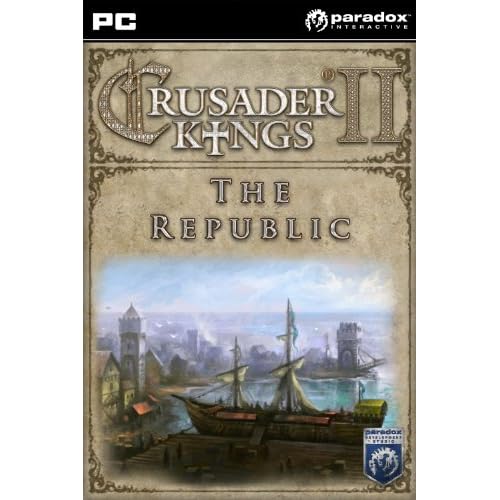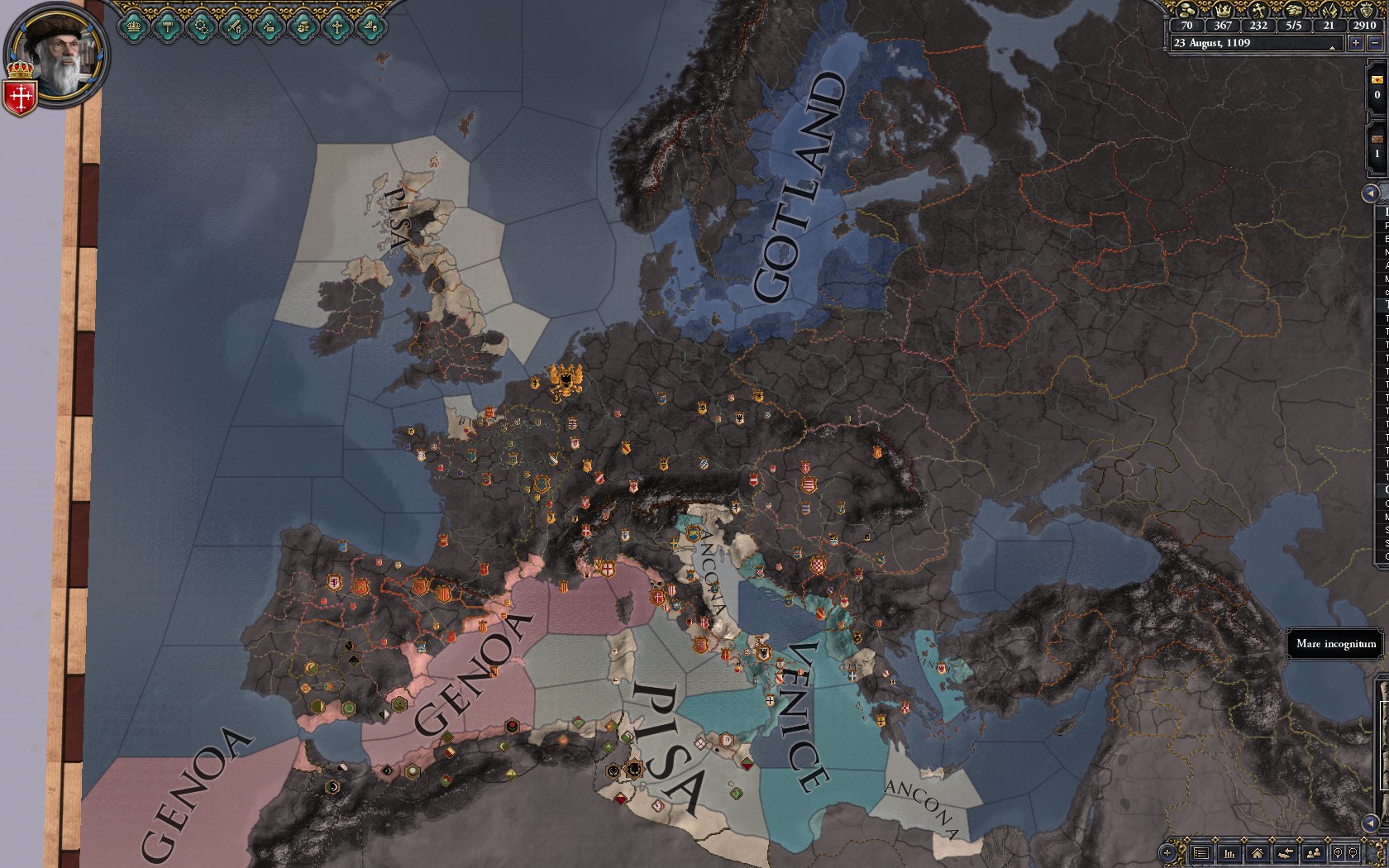 “The third expansion for Crusader Kings II by Paradox Interactive enables you to play as a Patrician in one of the great medieval Merchant Republics. Expand your trade empire as you compete with the other Patrician families for the coveted position of Doge and the leadership of the Republic.”
“The third expansion for Crusader Kings II by Paradox Interactive enables you to play as a Patrician in one of the great medieval Merchant Republics. Expand your trade empire as you compete with the other Patrician families for the coveted position of Doge and the leadership of the Republic.”
When adding “The Republic” to your Crusader Kings II game you will notice some of it’s features in your old save game, such as the 2 new map data layers, merchant ports appearing in counties (perhaps even that you own) and the occasional call to embargo someone. Only when you start a new game do you get the full wealth of the expansion pack.
Launching a new game, you can now see a Republics tab showing you the main Merchant republics of Venice, Genoa, Pisa and Gotland. As with the base game, you can chose to play as the leader of a republic, or one of his vassals. Unlike the base game however, your objective is not going to be to gain as many counties or duchies that you can, but instead dominate the trade zones.
Every coastal county has the option to build a trade port in it, and any of the republics can build anywhere they like, but there is a cost involved. The cost increases the further away you go from any lands you own, and also based on that counties rulers opinion of you. To bring your cost down, you can now make a claim to any of these coastal counties for your own, allowing you to get a foothold anywhere that you chose. Building up your trade ports in a single area will grant them a trade zone bonus, and looking at the new map data layers you can see trade zone by either family or republic.
Each republic has five families vying to be “Serene Doge”, effectively the leader of the republic. The head of each family, along with the current Doge and predicted successor can be found under a new top panel, with the predicted successor being based on a reputation value. This value is composed of Prestige, personal wealth and age. You can also add money to your campaign fund to increase your selected heirs chances of being elected. It is an election though, so even if you make yourself favourite, it doesn’t guarantee your success. What it does do is change your perspective on inheritance laws though. Whereas normally you would be looking for probably your first born son to increase the length of the next rulers reign, you are more likely to go for an older heir that will have a higher base respect.
Another new concept as part of The Republic is embargo wars. You can ask (bribe) one of your allies to kindly embargo one of the other factions. If they agree, then they will declare war on the faction and, if successful, will destroy a number of trade posts that are within their lands and prevent that faction from rebuilding on them for 5 years, allowing you to move in on territory that was theirs before. Of course, your enemies can also call embargo wars on you, and they come rather unexpectedly, so it still pays to have some good allies. They don’t come cheap either though, as you will have to front a Bride cost if you intend on wedding your children off to powerful rulers.
Fortunately all these new costs are compensated by the income you bring in from trade ports along with the new random events specifically for Republics (such as a ship originally thought to be lost turning up in port after 3 years). And because all the coastal towns are Cities, they generate a large amount of tax too, if you go down the route of collecting a few. After your first generation you should see the gold rolling in, and will even be able to afford the big mercenary armies for when the Pope comes calling with his Holy wars.
Crusader Kings II: The Republic does add a whole new level to Crusader Kings, a deep one at that, and would be a great addition if you have already played Crusader Kings and have somehow run out of things to do. Even an experienced Crusader Kings II player will have to spend some time learning the new mechanics, particularly with succession, and will have to adjust their game plan from land grab to money grab in order to be successful. However, that adjustment might be too much for some, and they could find themselves reverting back to the base game to get on with some land conquering.
8 embargo wars won out of 10
